Essays & Interviews

“Move Fast and Fix Things”: Starmerism Unravelling
Moulded by its own fealty to the Treasury, rentier capital, and a declining Atlanticism, Starmer’s vision for the British economy is an attempt to kickstart growth that is weighed down by its own contradictions. In this article, Jonas Marvin details this growth mindset that is hindered by its own authoritarianism amidst the breakdown of the US-led global order, the decimation of living standards, and the growing impact and realisation that runaway climate change is here to stay.

‘No one way works’: An Interview with Ira Terán and Emrys Travis on Trans Marxism
In this interview with Ira Terán and Emrys Travis, Sylvia McCheyne discusses what exactly trans Marxism is, how it is so often a foil against mechanical applications of dialectics, and why it is so important to organising and what comrades in the UK and elsewhere can learn from trans struggles.

‘Decolonisation Isn’t Just a Buzzword’: An Interview with the University of Birmingham Liberated Zone
In this interview, Alfie Hancox sits down with Alma of the University of Birmingham Palestine solidarity encampment to discuss how the camp began, developed internally, and now their desire to engage with the radical tradition of the university, including the legacy of Stuart Hall, to take their anti-colonial and anti-racist activism into the wider city.

Sunderland and Middlesbrough Race Riots and Anti-Fascist Resistance
Describing their personal experience of the riots in Sunderland and Middlesbrough, Sophia Alderson affirms that, although the demonstrations in Newcastle and other cities were inspiring and a much needed salve for the immediate threat of fascism on the streets, the left must organise wherever the fascist threat materialises and not abandon communities to fascism.

Lines for Redevelopment: Developer-Funded Public Art, Gentrification, Displacement and Exclusion
Detailing the 24 works of art along The Line, a route of artworks that begins at the Olympic Park in Stratford and finishes at the O2 arena on the Greenwich Peninsula, Henry Broome relays the function of public art as a gentrifying force as he connects to local struggles against the forces of capital.
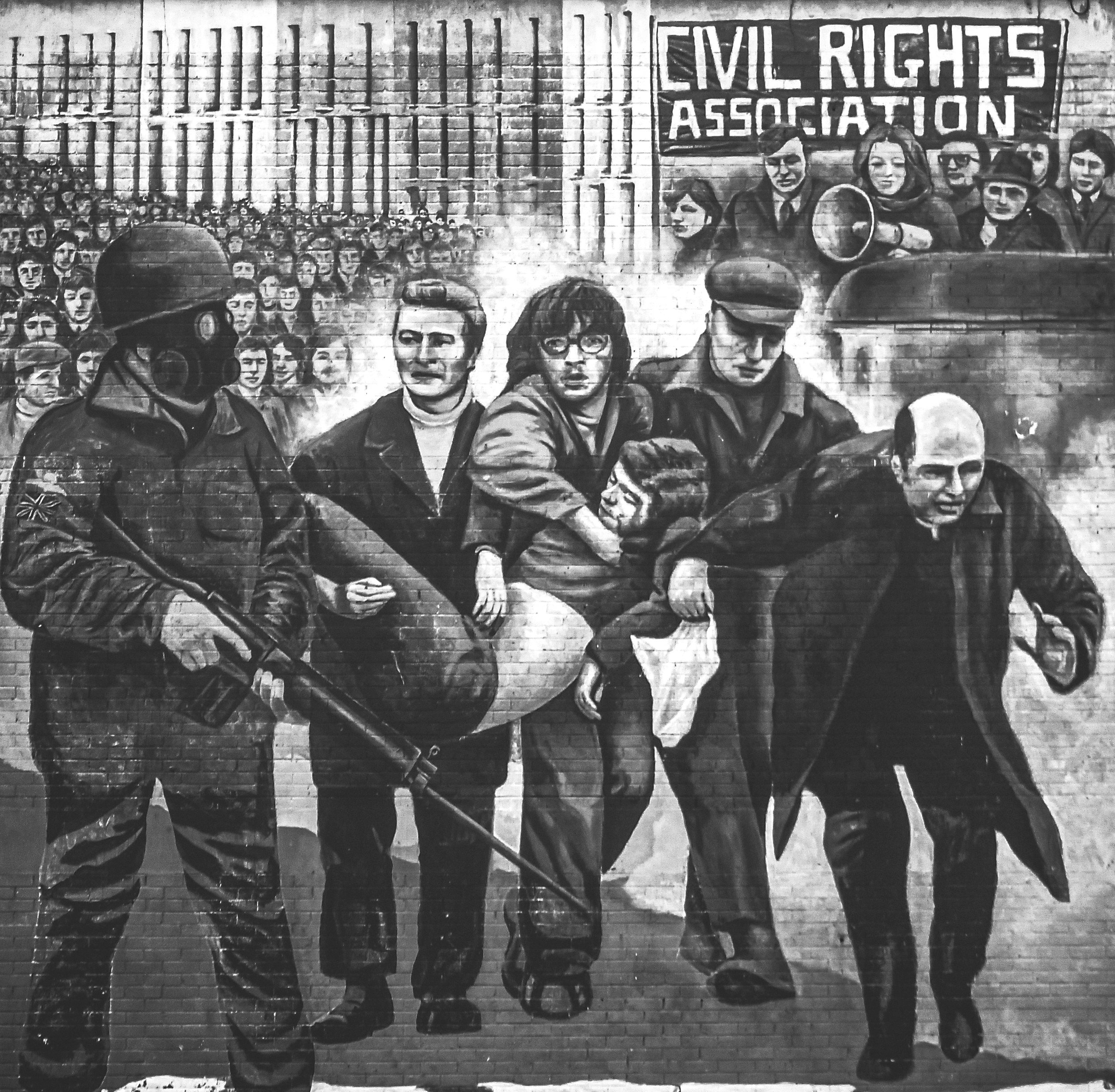
‘The situation in the North of Ireland remains a colonial one’: An interview with Odrán de Bhaldraithe
Ahead of its publication on the 22nd of June, Louis Allday spoke to Odrán de Bhaldraithe about Neglect in the North of Ireland, a book that details the manifest neglect in the North’s economy, its politics, housing, and healthcare, the root of which is clear: British rule.
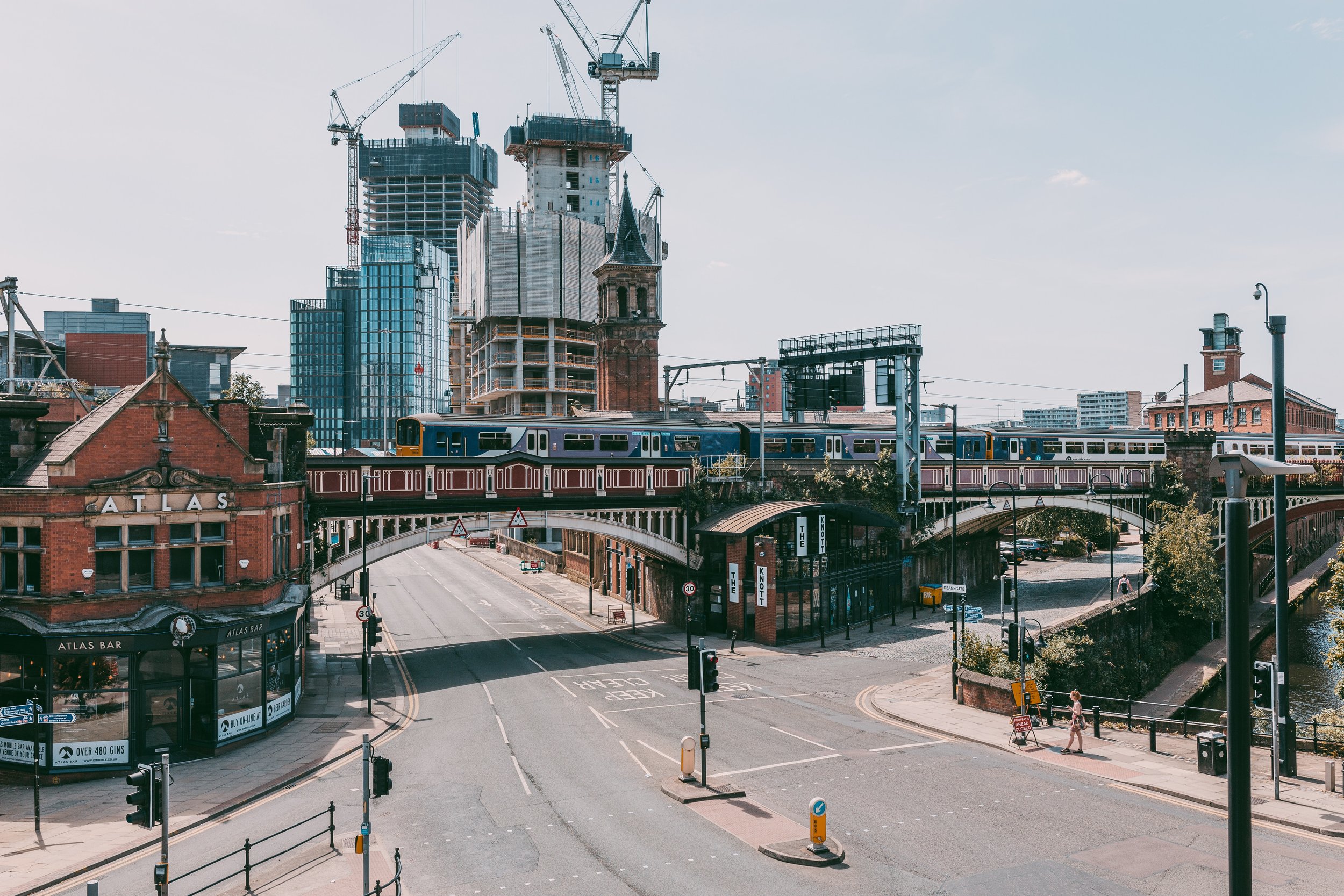
The Imperialist Roots of the Manchester Model
In this response to Isaac Rose’s Tribune piece, Ignatz Maria critically assesses the deficiencies of the popular ‘financialisation’ framework as an explanation for the urban crisis in Manchester and for the contradictions of the so-called Manchester model. Maria highlights how an over-emphasis on the role of foreign capital in urban development obscures the role of Manchester as a key node in British capitalism and in turn serves to legitimise the chauvinism used by the local council to mask their own complicity in the crisis.
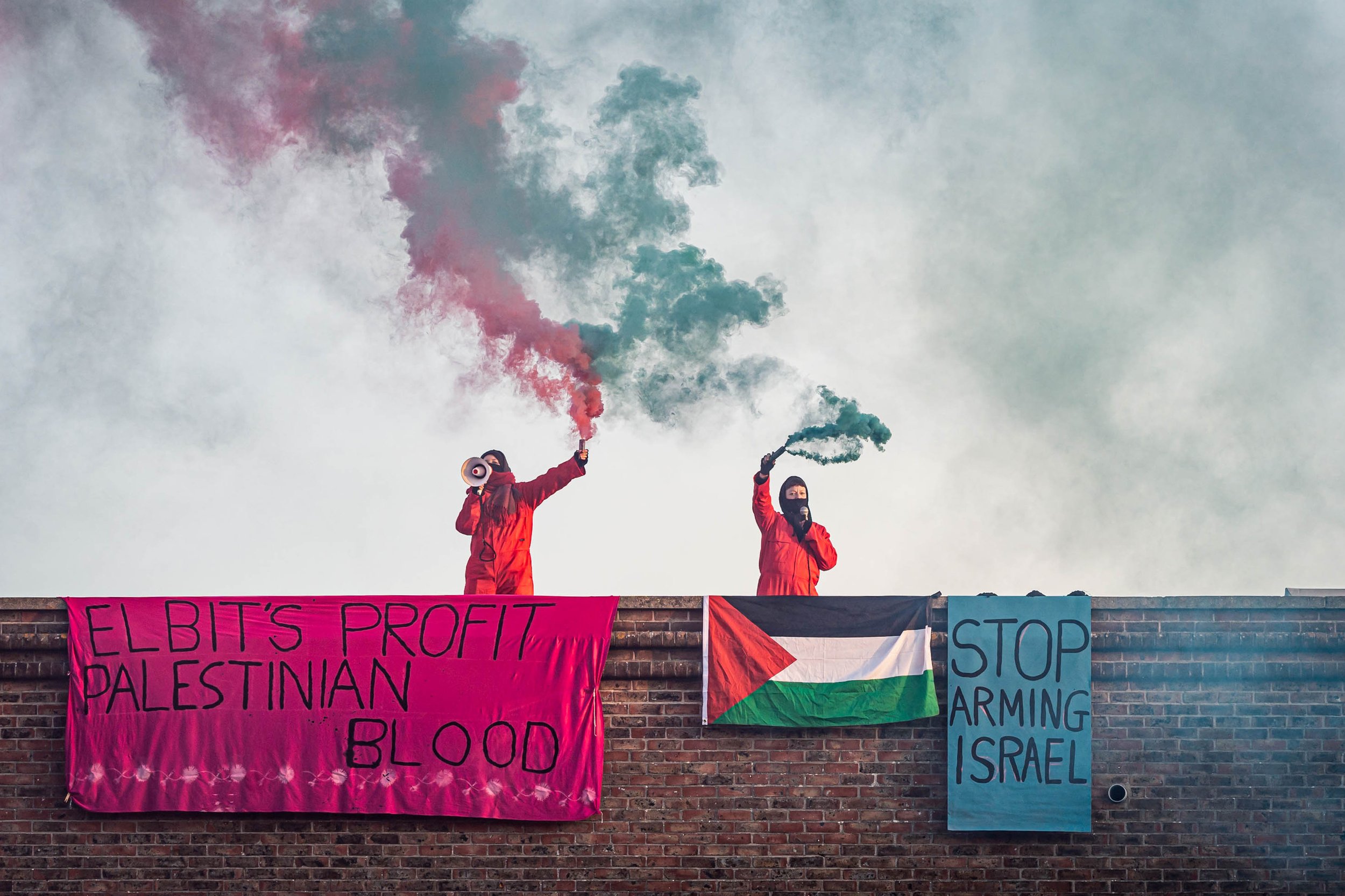
Unravelling the Paper Tiger: Palestine Action’s Siege
From May 1st, Palestine Action will lay siege to Leicester’s Israeli arms factory. In this essay, they detail their tactics in combatting the broader supply chain in Britain to limit the destruction and death wrought in Palestine – calling for the mobilisation of the British left to achieve this goal.

Red Fightback’s Final Crisis
Red Fightback was a communist and anti-imperialist organisation that aimed to take oppression seriously, adopting an intersectional approach that sought to address patriarchy, racism, and ableism, in contrast to much of the left in Britain. But the project has come to a sudden end, leaving both its membership and onlookers confused about contradictions within the party and its seeming failure to combat oppression within its ranks.

Paper Tories
All that the Tory candidates for the Leadership Election have to offer is more of the same – warmongering, escalating attacks on trans people, on migrant workers, escalating austerity and the cost-of-living crisis. Mao Zedong’s description of imperialism as a paper tiger remains strikingly pertinent.
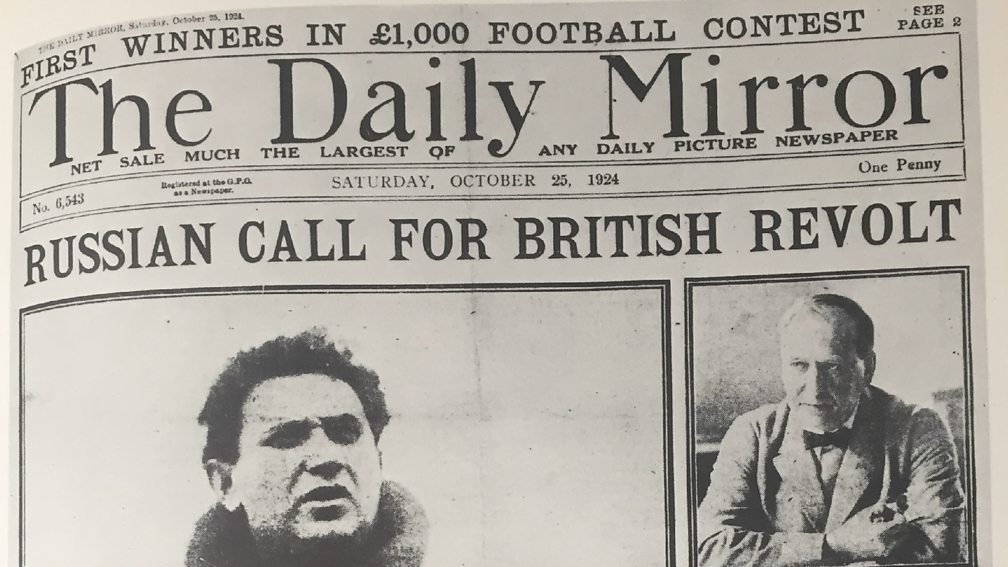
Anti-Communism in Britain
Anti-communism has had a constant presence in Britain which has ebbed and flowed with perceived crises of the state and the capitalist economy. Evan Smith traces this history of anti-communism, exploring the episodes that have shaped British politics ahead of the Tory leadership battle and a Summer of strikes.
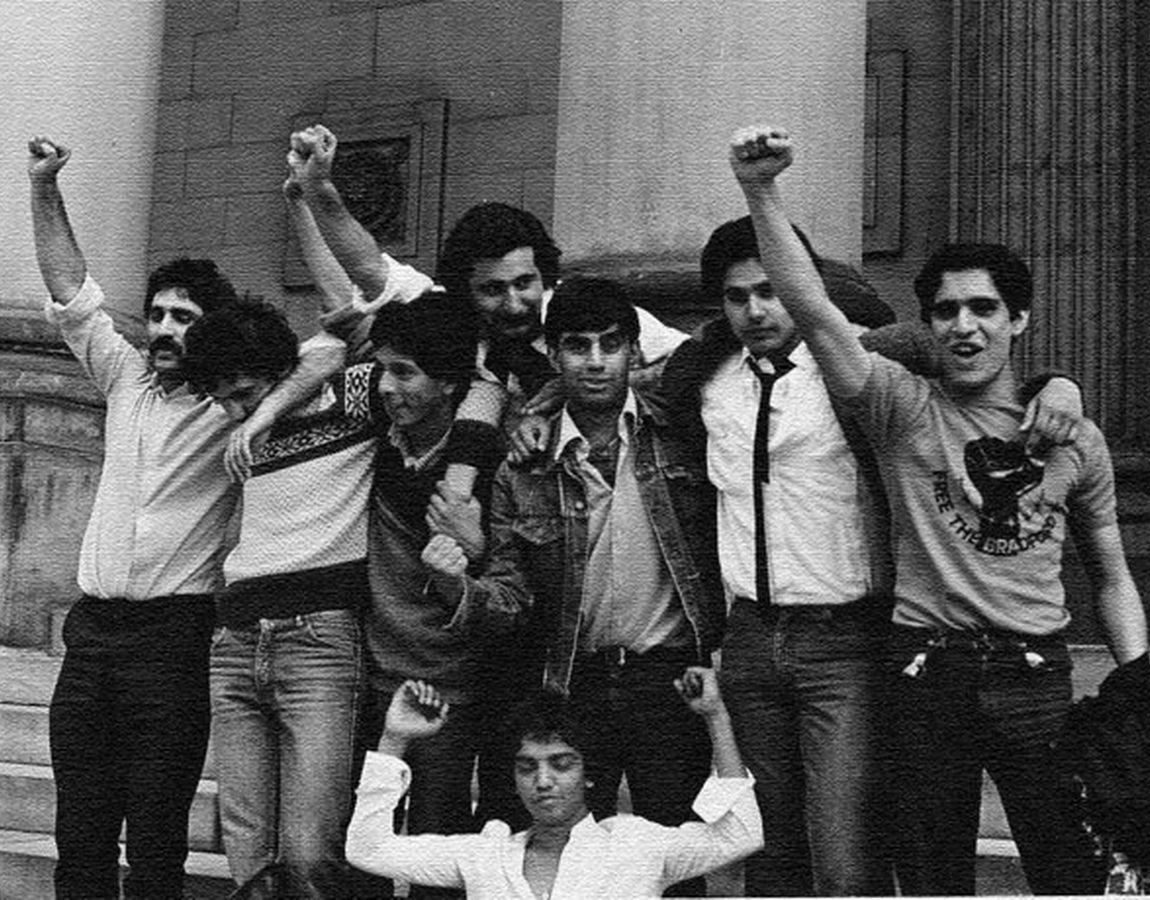
Forty years on from the Bradford 12
In this wide-ranging interview with Ebb Magazine to mark 40 years since the acquittal of the Bradford 12, Tariq Mehmood, co-founder of the United Black Youth League, discusses how Black Power in Britain presented an insurgent challenge both to state racism, and to the failings of the organised left on questions of race, immigration and imperialism.
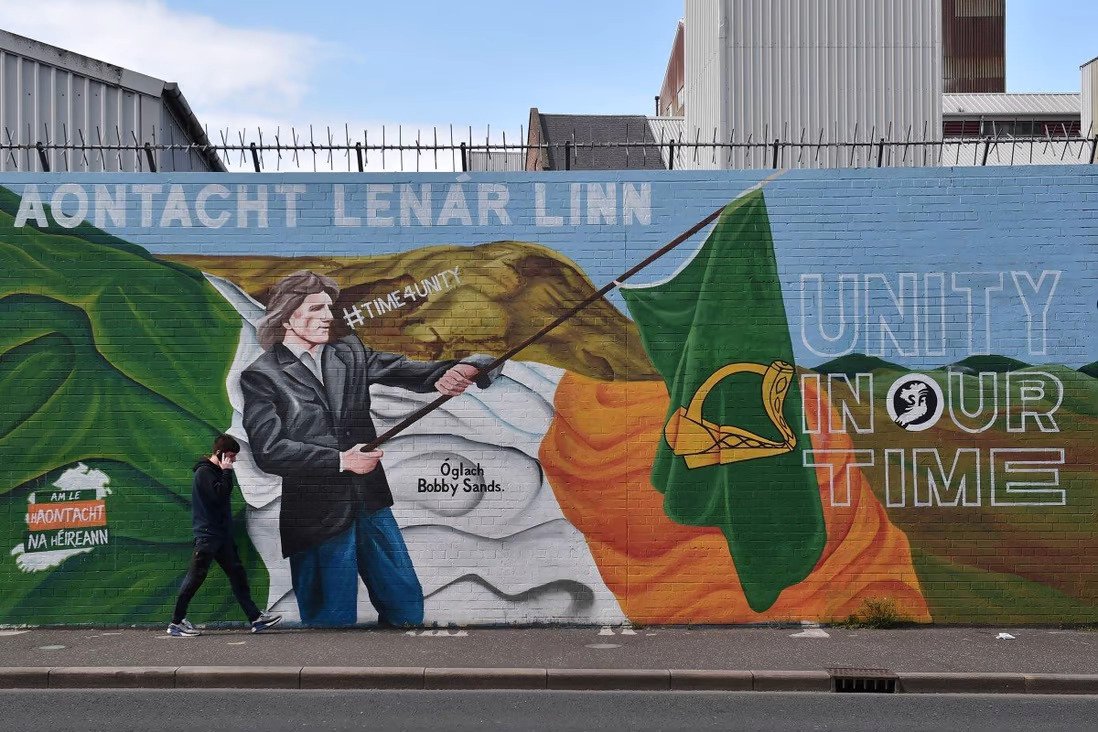
Time for real change? Sinn Féin and the recent Stormont election
Instead of celebrating the demise of the British institutions as a welcome step on the road to reunification, Sinn Féin find themselves pleading with their unionist partners in the administration of British rule in Ireland to return to Stormont. That the largest republican party is showing such commitment to the smooth functioning of the northern state should be worrying to anyone invested in reunification.
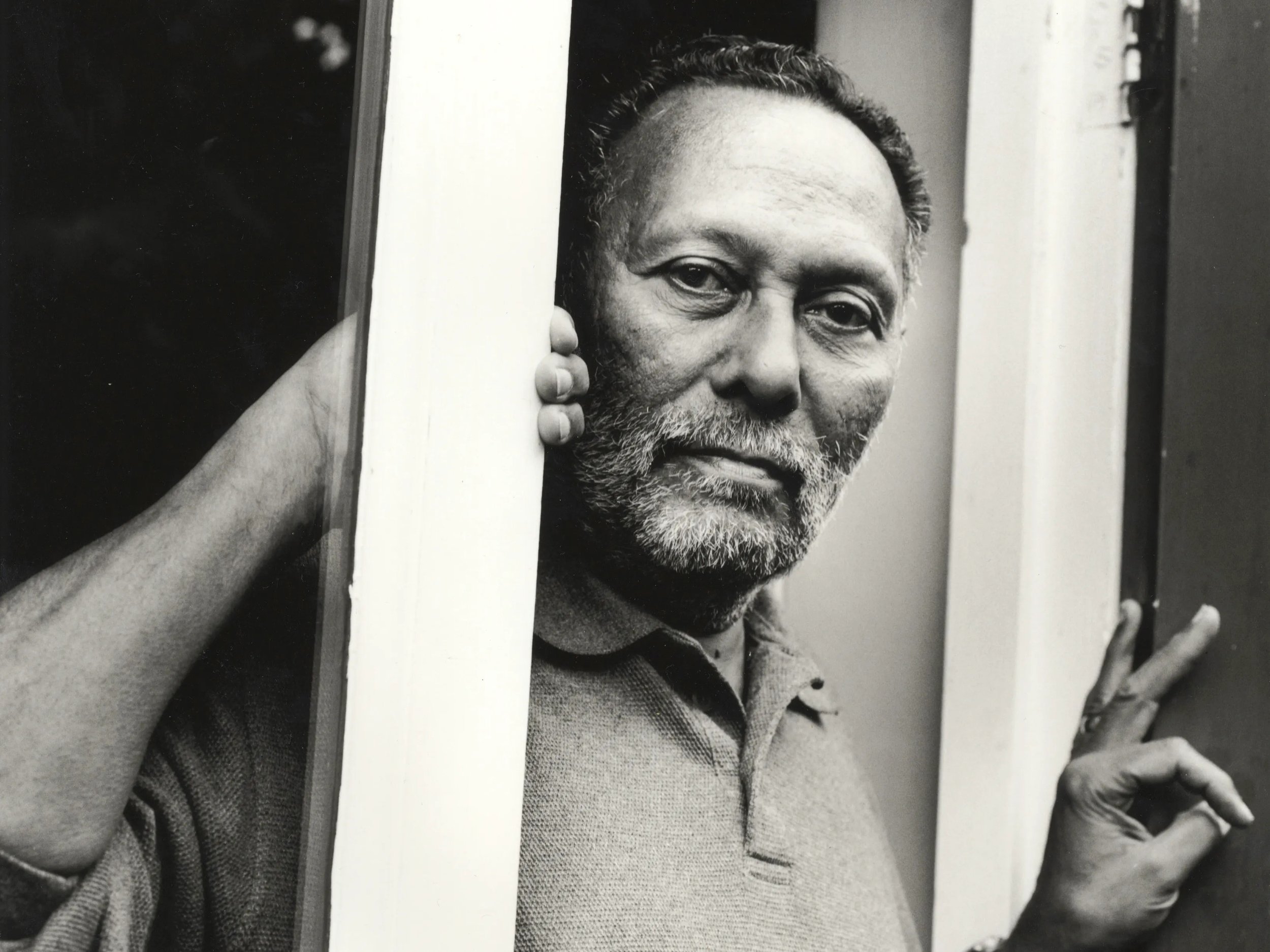
Starmer and Siege Social Democracy
Keir Starmer’s response to the cost-of-living crisis by doubling down on Labour’s appeals to 'law and order', attempting to outflank the Conservative Party from the right, demonstrates the relevance of Stuart Hall’s underutilised concept of social democracy 'adapted for siege conditions'.
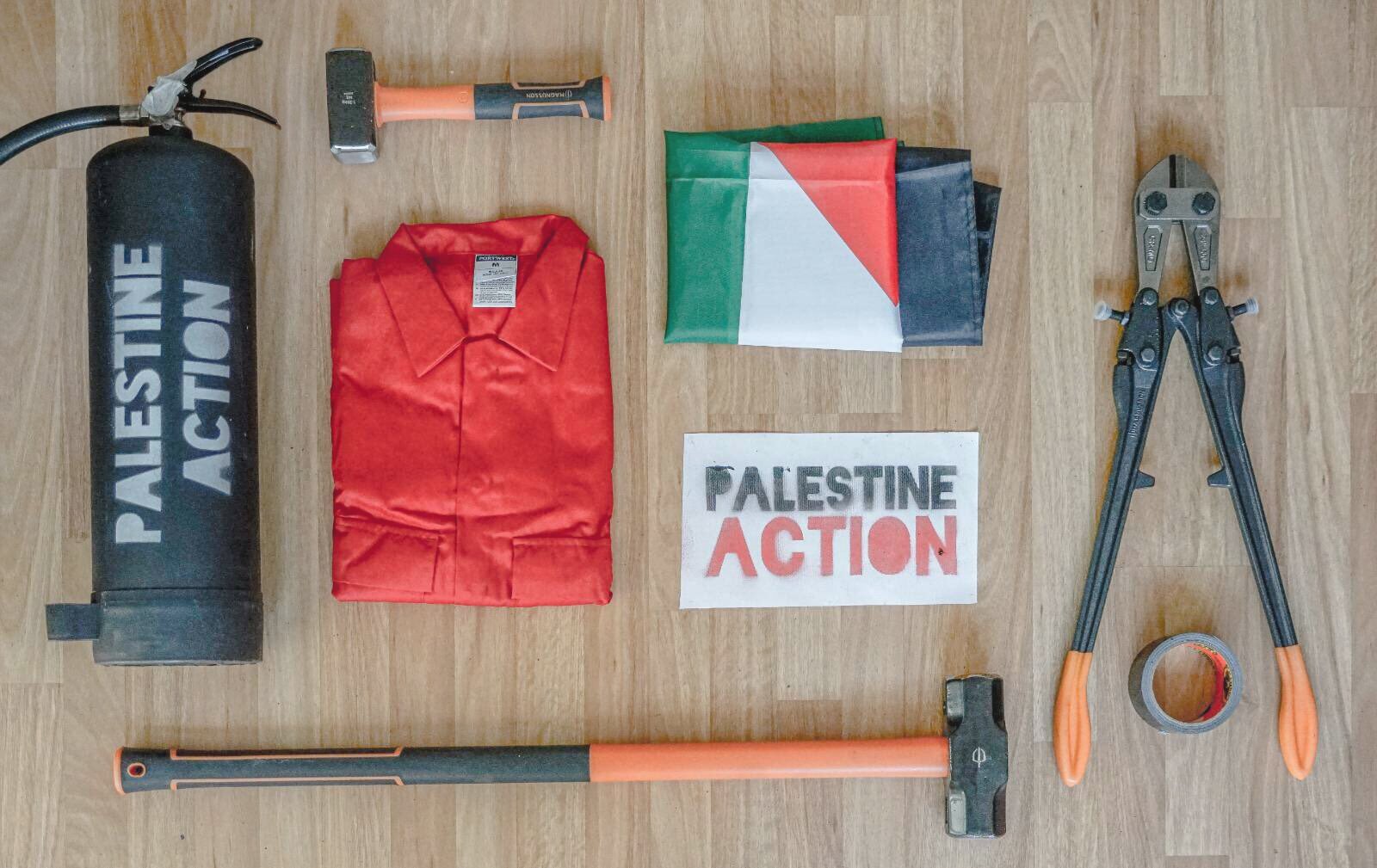
Palestine Action: Resisting Imperialism From Within
Palestine Action’s numerous successful occupations, blockades, and attacks carried out on Elbit infrastructure – causing over £15 million in losses, shutting down operations for 105 days and preventing the manufacture of arms – has shone a light on what successful resistance can look like in the imperialist core.
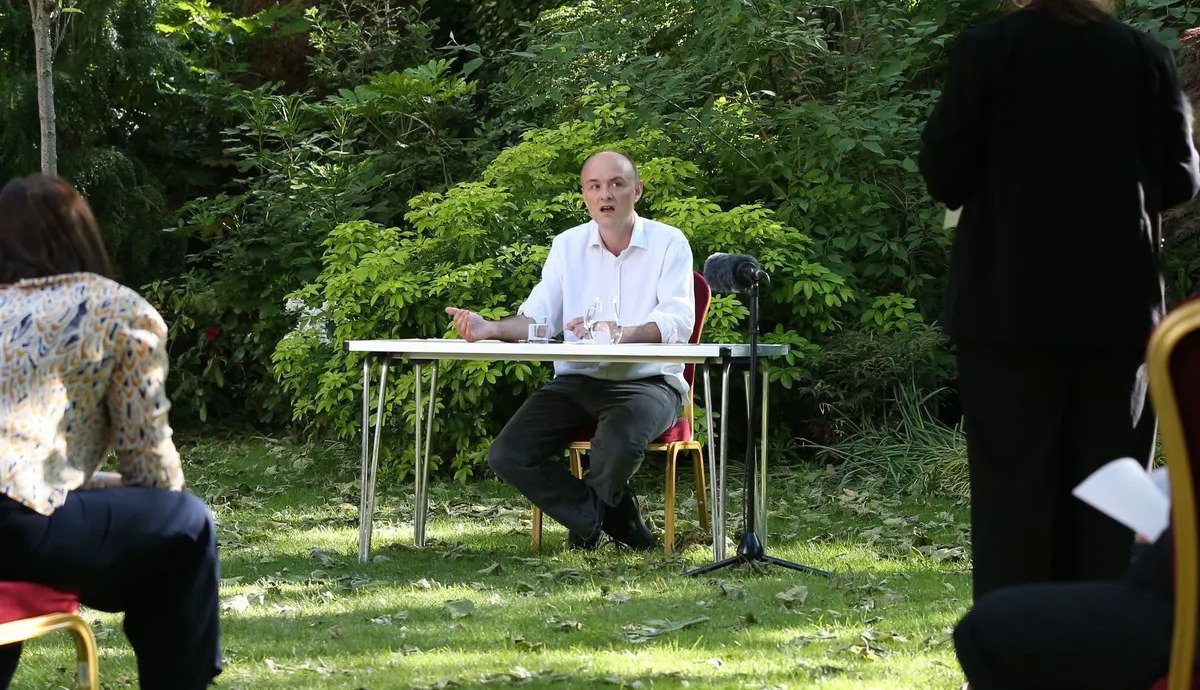
What We Already Knew About Britain's Covid Failures
Dominic Cummings spent hours in front MPs giving a seemingly devastating indictment of the government's response to Covid, detailing how they ignored scientific evidence, lied to the British public and actively endangered them. Yet we didn't need Cummings' testimony to know this; the government's failures have been clear from the start of this crisis.
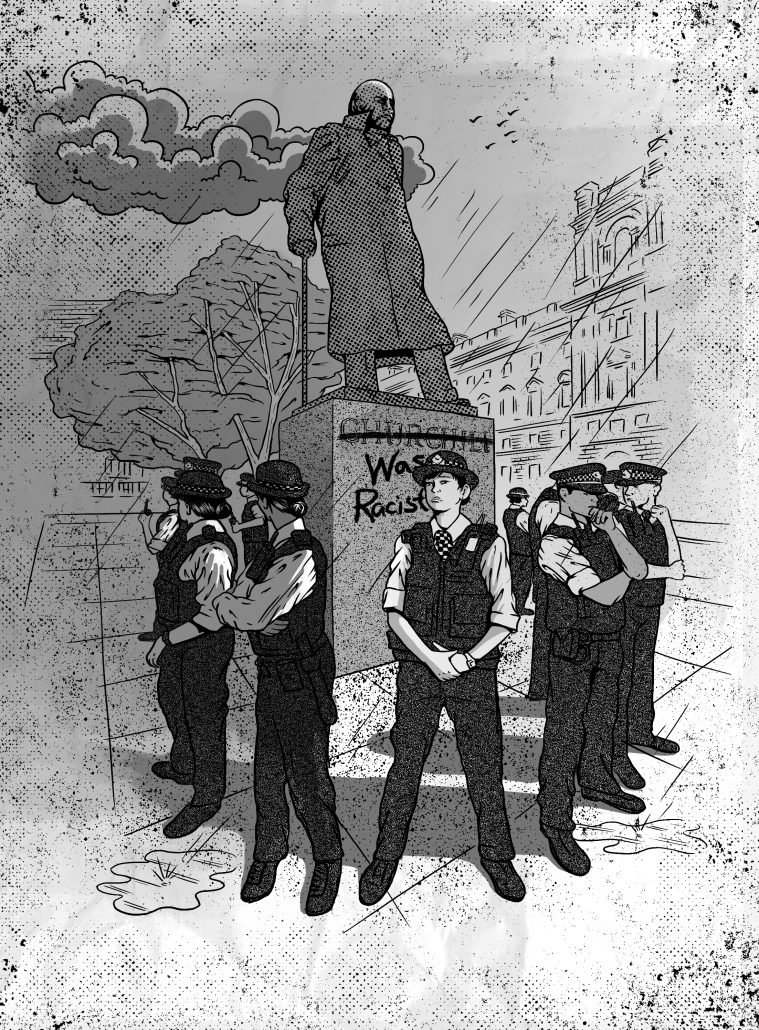
Statues and gangs: fascist panic and policing
Bloated since the 1990s, there has been a continuous extension of activities categorised as criminal, of police capacity, and of police access to – and powers over – people. Bolstered by tough law-and order talk from the government, policing is increasingly unaccountable and moving rightwards.
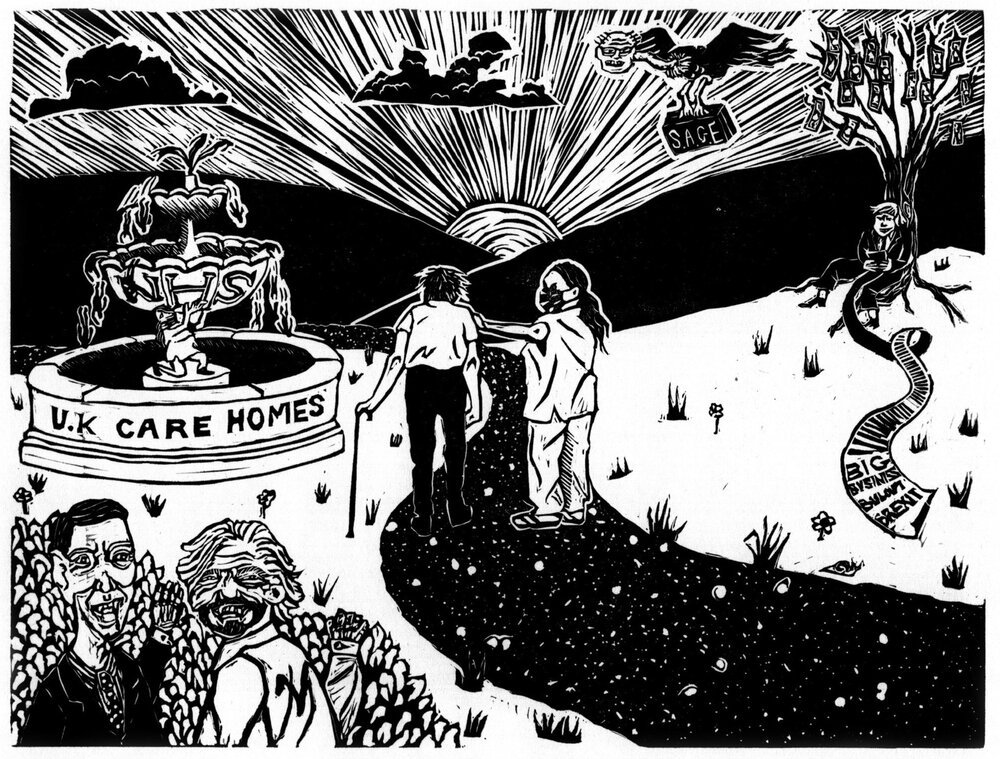
Britain’s Covid-19 care home cull
Deprived of protective equipment and tests, threatened with funding cuts unless they accepted Covid-positive patients from hospital, along with the enforcement of ‘Do not attempt resuscitation’ notices, care homes and their residents have borne the brunt of government policy. This amounts to no less than social murder, one that was a long time in the making.

Justice for Workers at Goldsmiths in the fight against casualisation
With traditional trade unions increasingly unable to tackle casualisation and job losses, with calls across the country for the UCU to step in and respond to the threat of mass job losses amid the Covid crisis, J4W discuss their tactics and how necessity has led them to organise among workers across Goldsmiths.
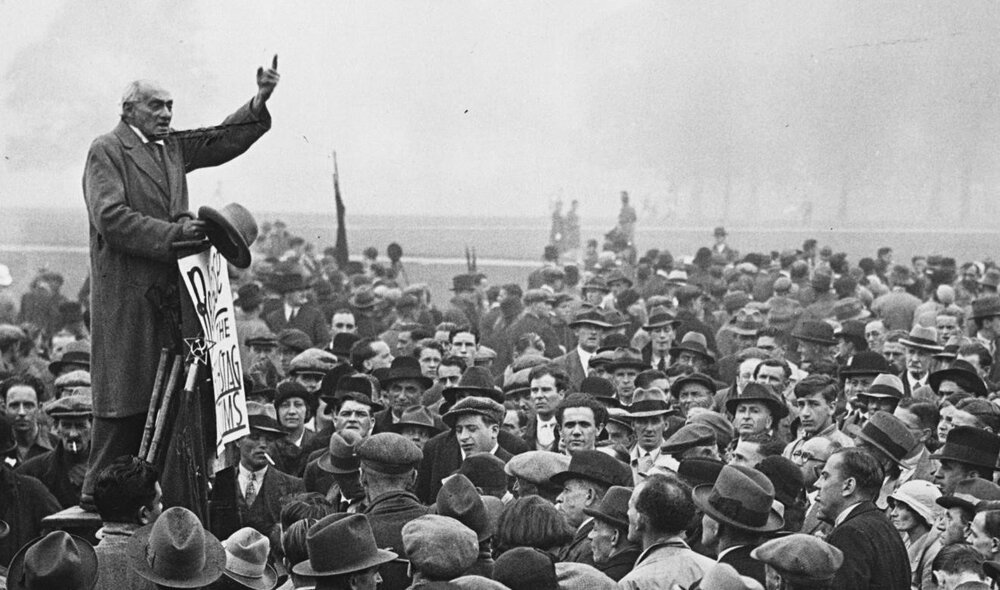
British Communism’s Patriotic Disease
Left-wing patriotism in Britain carries the shameful legacy of the Second International’s self-destruction, and even a progressive patriotism presents a paternalistic narrative in which workers of colour are the ‘good immigrants’ who helped rebuild the nation rather than resisted colonialism.
